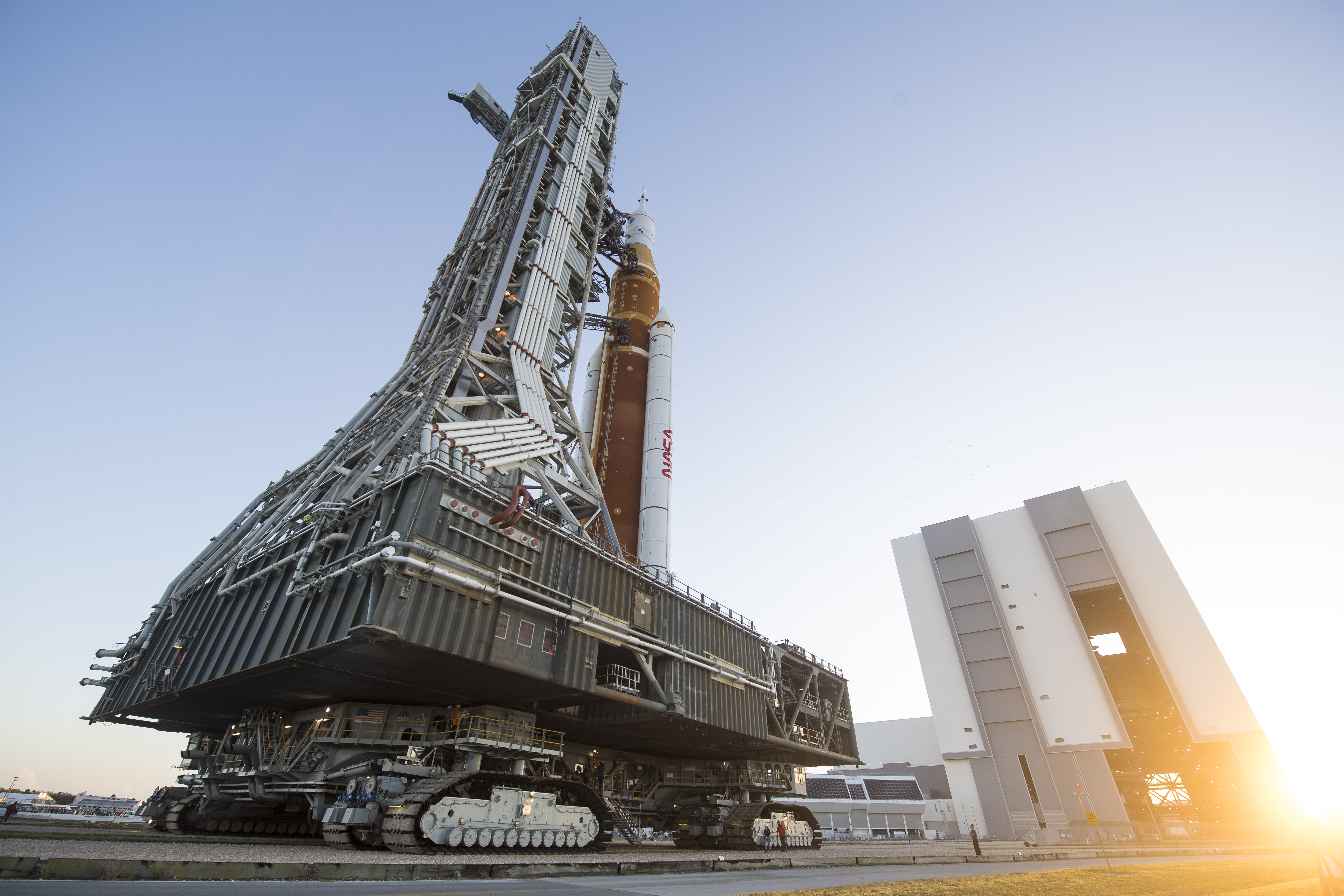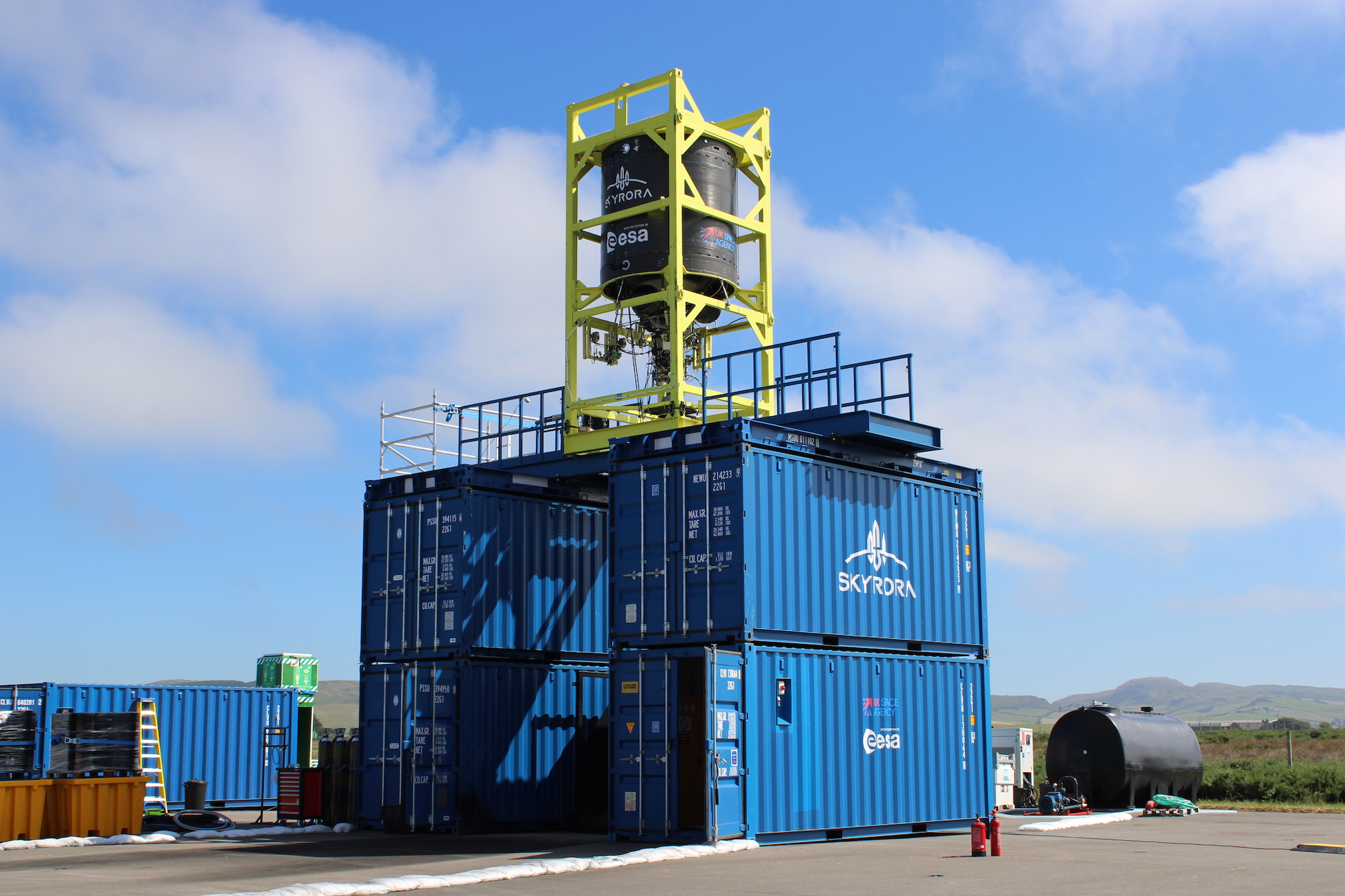Hello and welcome back to Max Q. T-minus 1 week until Artemis I liftoff. Are you going? I’ll be there! In this issue:
- NASA’s mega moon rocket rolls to the launch pad
- Skyrora’s testing milestone on Scottish soil
- News from Astrobotic, Blue Origin and more
Space Launch System heads to the launch pad ahead of maiden flight
NASA engineers completed final tests of the Space Launch System (SLS), which cleared the way for the mega moon rocket to roll out a few days earlier than planned.
The space agency was able to move up the date for the rollout — when SLS is moved from the Vehicle Assembly Building to the launch pad at Kennedy Space Center — because it completed testing of the flight termination system (FTS). The FTS is a critical series of components that ensure that a rocket can be safely destroyed after take-off. Testing of the FTS was “the final major activity” on NASA’s pre-launch to-do list, the agency said.
That means NASA is on track to target August 29 for the maiden launch of the 322-foot mega rocket and Orion spacecraft. With the extension from Space Launch Delta 45, NASA will have additional launch opportunities on September 2 and September 5.

Image Credits: Aubrey Gemignani/NASA via Getty Images
Skyrora completes second stage static fire test of its flagship rocket
U.K.-based launch company Skyrora hit a new milestone in the development of its Skyrora XL rocket with the completion of a static fire test of the second stage. The single engine, designed and manufactured by Skyrora, completed a nominal 20 second burn, bringing the company one step closer to its first orbital launch in late 2023.
Skyrora is one of a number of small launch companies based in the United Kingdom and Europe, each hoping to compete in these countries’ burgeoning commercial space sectors. According to Skyrora COO Lee Rosen, whose career spans a 23-year tenure with the U.S. Air Force and an 11-year stint at SpaceX, this test sets Skyrora apart from its competitors.
“Others like to make a nice showing of their factory or maybe an engine test or things like that, but I think the fact that [we’ve] got an integrated system solution test says a lot about where we are,” he said.
“It’s not about bragging about what you might go do,” Rosen added. “It’s about doing. That second-stage test is a great way of doing and showing.”

Image Credits: Skyrora
More news from TC and beyond
- Astrobotic bid $4.5 million for the assets of Masten Space Systems, which filed for Chapter 11 bankruptcy protection last month.
- Astrobotic’s Peregrine lunar lander successfully underwent communications testing with Deep Space Network and NASA’s Jet Propulsion Laboratory ahead of the lander’s mission to the moon.
- Blue Origin’s rocket recovery ship, “Jacklyn,” is headed to a scrapyard. The company appears to be rethinking its recovery plans, though it’s unclear what method it might use instead.
- D-Orbit called off its plans to merge with special purpose acquisition company Breeze Holdings Acquisition Corp., a transaction that was expected to inject D-Orbit with as much as $185 million.
- The European Space Agency is soliciting preliminary ideas for a reusable heavy-lift rocket à la Starship, “to accommodate large space infrastructures (e.g. space-based solar power, space data centre, etc.) and deep space missions.”
- The European Space Agency also launched a new startup accelerator called Nordic Launch for startups focused on space technology.
- Firefly Aerospace announced the next launch attempt of the Alpha rocket is scheduled for September 11, after the completion of a successful static fire test.
- HawkEye 360’s fourth and fifth satellite clusters have commenced operations, doubling the constellation’s data and imaging capacity. There are three satellites in each cluster.
- Redwire said it will develop the first commercial greenhouse in space, to launch no earlier than spring 2023. The greenhouse, which will be installed on the International Space Station, is being funded through an award from ISS National Lab.
- SKY Perfect JSAT, a Japanese company, has commissioned SpaceX’s Starship to launch its Superbird-9 communications satellite. According to the press release, the launch is scheduled for 2024.
- Space in Africa estimated in a new report that the African space economy is projected to grow by 16.16% from 2021-2026, from $19.49 billion to $22.64 billion.
- SpaceX wants to increase its launch cadence from the West Coast by “more than double,” and it’s hiring as a result. “We will train you,” Falcon 9 operations manager Steven Cameron said on LinkedIn.
Max Q is brought to you by me, Aria Alamalhodaei. If you enjoy reading Max Q, consider forwarding it to a friend.
source https://techcrunch.com/2022/08/22/max-q-to-the-moon/
Comments
Post a Comment